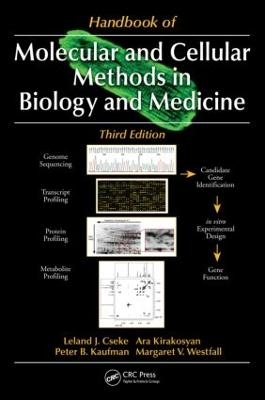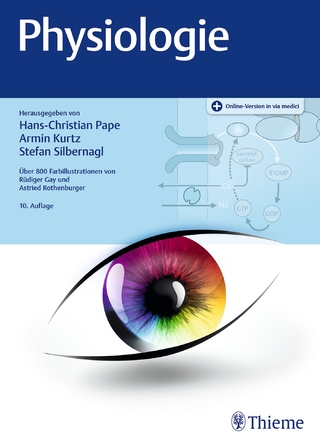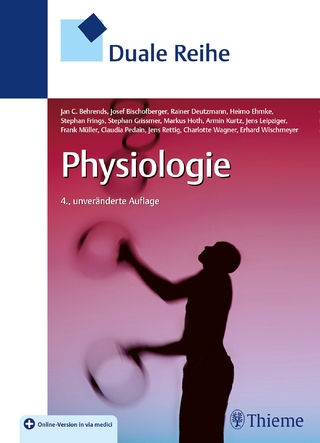
Handbook of Molecular and Cellular Methods in Biology and Medicine
Crc Press Inc (Verlag)
978-1-4200-6938-9 (ISBN)
- Titel z.Zt. nicht lieferbar
- Versandkostenfrei innerhalb Deutschlands
- Auch auf Rechnung
- Verfügbarkeit in der Filiale vor Ort prüfen
- Artikel merken
Significantly revised to address these recent changes, the editors have evaluated, revised, and sometimes replaced protocols with more efficient, more reliable, or simpler ones. The book has also been reorganized with section headings focusing on different biological levels connected to one another, taking into account the central dogma of biology (DNA → RNA → protein → metabolites). The book first explores traditional approaches and then moves to the modern "omics" approaches, including genomics, proteomics, and metabolomics. It also discusses the manipulation of biological systems (including RNAi) and macromolecular analyses, focusing on the use of microscopy.
In each chapter, various notes and cautionary considerations are presented for potentially hazardous reagents. Filled with diagrams, tables, and figures to clarify methods, most chapters also contain Troubleshooting Guides indicating problems, possible causes, and solutions that may be incurred in carrying out the procedures. Researchers and scientists who master the techniques in this book are putting themselves at the cutting edge of biological and medicinal research.
Leland J. Cseke is an associate research professor in the Department of Biological Sciences at the University of Alabama, Huntsville, where he works in conjunction with the Department of Energy and Argonne National Laboratory to determine the molecular mechanisms of keystone species in forest ecosystem responses to environmental changes. In addition, Dr. Cseke is working with the United States Department of Agriculture to develop cost-effective molecular methods for plant species identification and has helped to develop the national guidelines for plant molecular identification. Other projects include the metabolic engineering of Jatropha curcas plants for the improvement of biodiesel with emphasis on transcriptional regulators that help to control oil biosynthesis. Ara Kirakosyan is an associate professor of biology at Yerevan State University, Armenia, and is currently a research scientist at the University of Michigan. Dr. Kirakosyan’s primary research areas include the impact of phytopharmaceuticals on prevention of heart failure, challenges and pitfalls in antioxidant research, and mechanisms of synergistic action of bioactive medicinal compounds at target sites. His research on phytochemicals and antioxidants in foodstuffs has direct implications for the health industry, specifically in the area of cardiovascular disease. He is also interested in plant biotechnology research to produce enhanced levels of medicinally important, value-added secondary metabolites Peter B. Kaufman is currently professor emeritus of biology at the University of Michigan, Ann Arbor, and research scientistwith the University of Michigan Integrative Medicine (UMIM) program. He is a Fellow of the American Association for the Advancement of Science (AAAS). He is also past president of the Michigan Botanical Club and past chairman of the Michigan Natural Areas Council. He served as secretary-treasurer of the American Society of Gravitational and Space Biology (ASGSB) and was the recipient of ASGSB’s Orr Reynolds Distinguished Service Award. He is currently doing research on natural products of medicinal value in plants with support from UMIM, the National Institutes of Health, Xylomed Research, Denali BioTechnologies, LLC, and the Cherry Marketing Institute (CMI) of Michigan. Margaret V. Westfall is an associate professor of surgery and molecular and integrative physiology and an assistant professor of biomedical engineering at the University of Michigan, Ann Arbor, Michigan. Her research is focused on heart failure and includes studies on protein kinase C modulation of contractile function; the role of the thin filament molecular switch protein, troponin I, in modulating contractile function; and analysis of proteomic expression in end stage heart failure. Dr. Westfall’s research has been funded by the National Institutes of Health and the American Heart Association. She currently serves on the editorial board for the American Journal of Physiology—Heart and Circulatory Physiology and the Journal of Molecular and Cellular Cardiology.
DNA-Based Technology. Isolation and Purification of DNA. DNA Cloning Strategies. Polymerase Chain Reaction Methodologies. Preparation of Nucleic Acid Probes.Southern Blot Hybridization. Genomic DNA Libraries. DNA Sequencing and Analysis. RNA-Based Technology. Isolation and Purification of RNA. RT-PCR and qRT-PCR Methodologies. Preparation of Nucleic Acid Probes. Northern Blot Hybridization. cDNA Libraries. Differential Display. Localization of RNA Expression. Isolation and Purification of Proteins. Western Blot Hybridization. Localization of Protein Expression. DNA Footprinting and Gel Retardation Assay. Protein–Protein and Protein–Ligand Interactions. Metabolites. Isolation and Purification of Metabolites. Analysis of Metabolites. Genomics, Proteomics, and Metabolomics. Bioinformatics and Data Analysis. Microarray Platforms. Microarray Data Collection. Microarray Data Analysis. Proteomics: Data Collection and Analysis. Metabolomics Data Collection and Analysis. Common Protocols on Membrane Lipid Analysis and Lipidomics. Integrated Functional Genomics. Manipulation of Biological Systems. Inhibition of Gene Expression. Inhibition of Protein Synthesis. Gene Transfer and Expression in Animal Cells. Methods of Stem Cell Lineage Analysis In Situ and in Cell Culture. Tissue Engineering of Fully Differentiated Tissue: Lessons from Work on Cardiac Myocytes. Plant Tissue and Cell Culture. Gene Transfer and Expression in Plants. Macromolecular Analyses. Microscopy: Light and Confocal. Microscopy: Scanning Electron, Environmental Scanning Electron, and Transmission Electron. Laser Capture Microdissection and Whole Genome Amplification. Index.
| Erscheint lt. Verlag | 27.1.2012 |
|---|---|
| Zusatzinfo | 28 Tables, black and white; 132 Illustrations, black and white |
| Verlagsort | Bosa Roca |
| Sprache | englisch |
| Maße | 178 x 254 mm |
| Gewicht | 1520 g |
| Themenwelt | Studium ► 1. Studienabschnitt (Vorklinik) ► Physiologie |
| Naturwissenschaften ► Biologie ► Genetik / Molekularbiologie | |
| Naturwissenschaften ► Biologie ► Zellbiologie | |
| ISBN-10 | 1-4200-6938-1 / 1420069381 |
| ISBN-13 | 978-1-4200-6938-9 / 9781420069389 |
| Zustand | Neuware |
| Informationen gemäß Produktsicherheitsverordnung (GPSR) | |
| Haben Sie eine Frage zum Produkt? |
aus dem Bereich


